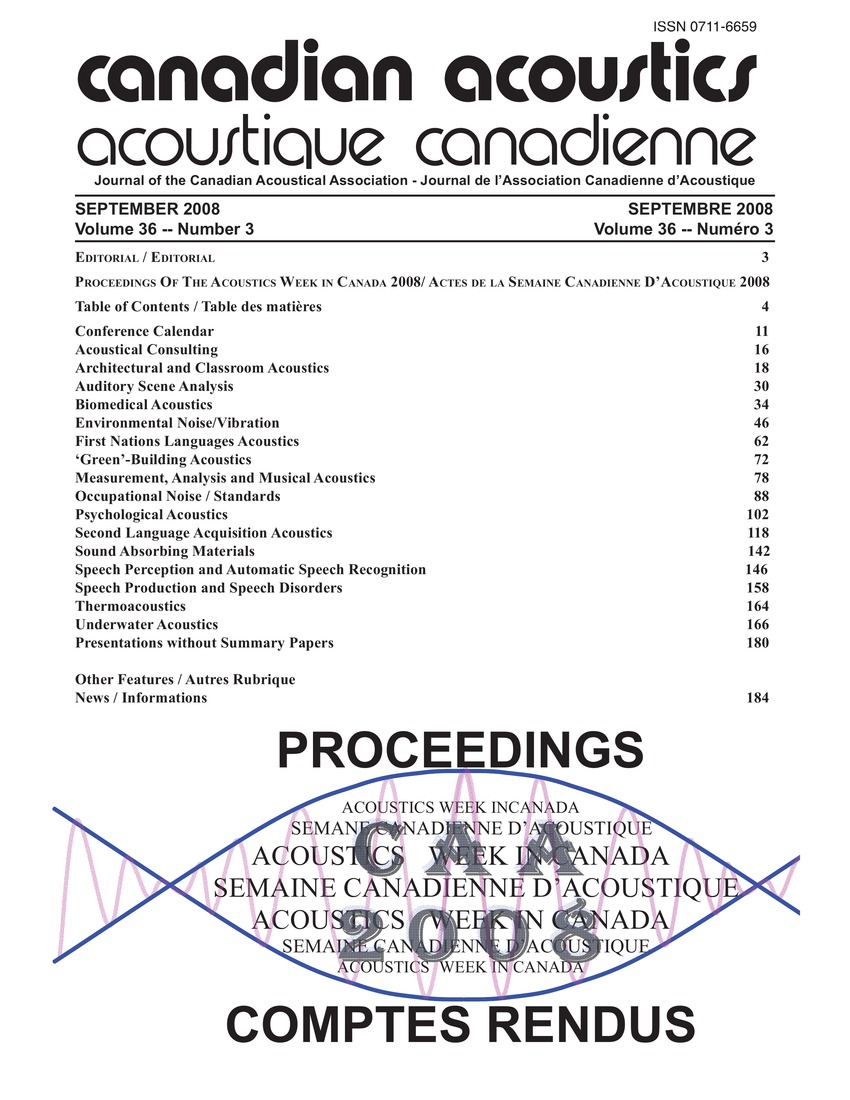Processing of Japanese pitch accent by native Japanese and English listeners
Mots-clés :
Errors, Dichotic listening, Pitch accents, Tonal languages, Young adultsRésumé
The effect of language background on processing of pitch accent was investigated. A dichotic listening paradigm was adopted to examine the way pitch accent in Japanese was processed in the brain by Japanese and English listeners. A total of 32 young adults participated in the experiment, including 16 Japanese and 16 native English listeners. The Japanese listeners all had no other tonal language experience. The stimuli were 30 Japanese disyllabic words with three pitch accent patterns. Two measures were calculated in the study that include % errors of identification of each pitch accent pattern in each ear and the percentage of errors (POE). It was observed that the average POE for the Japanese listeners is 40%, where that for English listeners is 42%.Fichiers supplémentaires
Publié-e
Comment citer
Numéro
Rubrique
Licence
Author Licensing Addendum
This Licensing Addendum ("Addendum") is entered into between the undersigned Author(s) and Canadian Acoustics journal published by the Canadian Acoustical Association (hereinafter referred to as the "Publisher"). The Author(s) and the Publisher agree as follows:
-
Retained Rights: The Author(s) retain(s) the following rights:
- The right to reproduce, distribute, and publicly display the Work on the Author's personal website or the website of the Author's institution.
- The right to use the Work in the Author's teaching activities and presentations.
- The right to include the Work in a compilation for the Author's personal use, not for sale.
-
Grant of License: The Author(s) grant(s) to the Publisher a worldwide exclusive license to publish, reproduce, distribute, and display the Work in Canadian Acoustics and any other formats and media deemed appropriate by the Publisher.
-
Attribution: The Publisher agrees to include proper attribution to the Author(s) in all publications and reproductions of the Work.
-
No Conflict: This Addendum is intended to be in harmony with, and not in conflict with, the terms and conditions of the original agreement entered into between the Author(s) and the Publisher.
-
Copyright Clause: Copyright on articles is held by the Author(s). The corresponding Author has the right to grant on behalf of all Authors and does grant on behalf of all Authors, a worldwide exclusive license to the Publisher and its licensees in perpetuity, in all forms, formats, and media (whether known now or created in the future), including but not limited to the rights to publish, reproduce, distribute, display, store, translate, create adaptations, reprints, include within collections, and create summaries, extracts, and/or abstracts of the Contribution.


